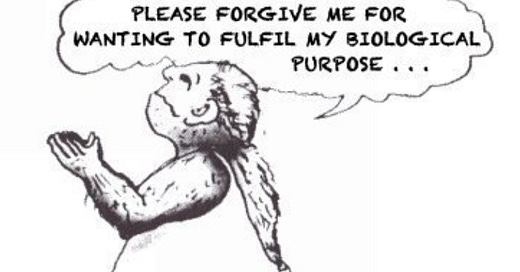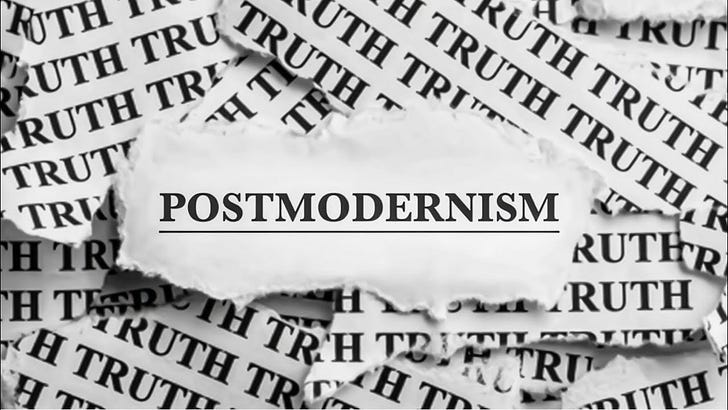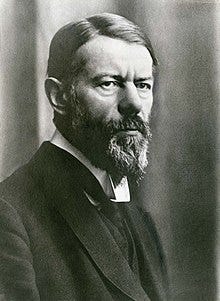Dear Nevermorons,
As you may know, I’m a big fan of the great psychedelic philosopher Robert Anton Wilson.
Why Science is Bullshit, and why Teenagers should take Acid.
WHY SCIENCE IS BULLSHIT, AND WHY TEENAGERS SHOULD TAKE ACID BY CROW QU’APPELLE Robert Anton Wilson is one of my favourite philosophers, and I consider him one of the greatest thinkers of the twentieth centuries. For some strange reason, he really doesn’t seem to get the respect that I think that he deserves.
Part of the reason that his work is so valuable is that he’s willing to say things that others aren’t. I imagine that this is at least partly likely due to the fact that he never had an academic career.
That isn’t to say he wasn’t an academic. He was. Prometheus Rising, his magnum opus, grew out of a thesis paper.
In the preface to the second edition, he explains:
It actually began as a Ph.D. dissertation called “The Evolution of Neuro-Sociological Circuits: A Contribution to the Sociobiology of Consciousness,” which I wrote in 1978-79 for an alternative university called Paideia.
That university seems to have been prestigious at the time, at least in certain circles.
At that time, Paideia ranked as State Approved, the highest rating given to alternative universities in California, where we have alternatives to everything and the state feels required to classify the alternatives on a scale of “experimental” to totally bonkers.
Part of the reason that I’m sharing this is out of some kind of wistful desire to be part of some kind of centre of higher learning. I spend basically all of my time reading, thinking, and writing. It’s quite a solitary pursuit, and I am a very extraverted person.
I would love to study anthropology amongst people who were as interested as ideas as I am, but academia is basically morally bankrupt beyond all hope of redemption at this point. Pay good money to institutions that are indoctrinating people with the prejudices of the ruling class? No thanks.
Furthermore, anthropology is part of what’s called “the social sciences”, which include sociology, where the worst of the worst of woke ideologues are dominant. And wokesters HATE anthropology.
Why? Because there’s no such thing as politically correct anthropology. If you want to understand another culture, you have to suspend judgement, at least initially. You can’t be curious and judgemental at the same time.
If you want to study another culture in an intellectually honest way, you must check your prejudices at the door. If one were to judge a cultural practice of another culture by the standards of your own, you would doing the exact same thing that made so much colonial-era missionary work objectionable.
Moral relativism gets a bad rap these days (for good reason), but cultural relativism is a prerequisite for any serious student of anthropology.
IS IT MORALLY WRONG TO FUCK YOUR COUSIN?
Let me take one example - cousin marriage. Is marrying your cousin morally wrong? If you immediately answered in the affirmative, I’ve got some news for you.
According to Wikipedia:
Worldwide, more than 10% of marriages are between first or second cousins. Cousin marriage is an important topic in anthropology and alliance theory.
In some cultures and communities, cousin marriages are considered ideal and are actively encouraged and expected; in others, they are seen as incestuous and are subject to social stigma and taboo. Cousin marriage was historically practiced by indigenous cultures in Australia, North America, South America, and Polynesia.[4][5][6]
I bring this up because I live in Mexico, where there is a substantial Mennonite population which live on communal ejidos. Most Mexicans don’t know too much about them, but one commonly held belief is that they practice cousin marriage.
I grew up in the Ottawa Mennonite Church, which was very liberal by Mennonite standards. We practiced the religion, and held on to certain cultural practices, but we didn’t speak plautdietsch (the Mennonite language), and in most ways we were ordinary Canadians. We definitely didn’t marry our cousins, that’s for sure.
This brings me to ideas of Emic and Etic, two key terms in anthropology.
The "emic" approach is an insider's perspective, which looks at the beliefs, values, and practices of a particular culture from the perspective of the people who live within that culture. This approach aims to understand the cultural meaning and significance of a particular behavior or practice, as it is understood by the people who engage in it.
The "etic" approach, on the other hand, is an outsider's perspective, which looks at a culture from the perspective of an outside observer or researcher. This approach tends to focus on the observable behaviors and practices of a culture, and aims to understand them in terms of their functional or evolutionary significance.
Part of the difficulty in studying human beings is that they lie. This is why the concepts of Emic and Etic are best paired with an understanding of the “social desirability bias”.
The social desirability bias is a term from sociology and describes the tendency of survey respondents to answer questions in a manner that will be viewed favorably by others. It can take the form of over-reporting "good behavior" or under-reporting "bad", or undesirable behavior.
The case of cousin marriage is a case in point. Mennonites historically did practice cousin marriage, no one denies that. Do Mexican Mennonites still practice cousin marriage? I wouldn’t be surprised if they did.
It just so happens that my uncle has a PhD in anthropology and conducted fieldwork amongst Old Order Mennonites in Southern Ontario. I saw him at Christmas and decided to ask him about whether cousin marriage had been practiced at that time, which I believe was in the 1960s. He told me it did happen, but that it was disapproved of and discouraged. However, if two cousins really wanted to get married and could not be dissuaded, it was allowed.
So, what am I am supposed to do when talking about my culture with Mexicans now? If I’m intellectually honest, and I believe that the Mennonite religion is a good thing, then I’ll have to defend cousin marriage, won’t I?
Furthermore, this line of thinking really gets you wondering about how things came to be the way they are.
In some jurisdictions, cousin marriage is legally prohibited: for example, in mainland China, Taiwan, North Korea, South Korea, the Philippines, and 24 of the 50 United States.
So does that mean that the Mennonite religion is illegal in those jurisdictions? That doesn’t mean right to me. Traditional Mennonites deliberately live apart from the state and avoid being dependent on it in any way. Why shouldn’t they be allowed to conduct themselves as they wish? They’re clearly capable of managing their own affairs, as are the Amish. Shouldn’t they have the right to be left alone?
The boilerplate justification for prohibitions of cousin marriage is the prevention of birth defects, but is that really the business of the state?
Plus, it turns out that’s not as much of a slam dunk argument as people think.
Opinions vary widely as to the merits of the practice. Children of first-cousin marriages have a 4-6% risk of autosomal recessive genetic disorders compared to the 3% of the children of totally unrelated parents.
Back to my main point. The reason that anarchists have always had an affinity for anthropology is because studying stateless societies shows us how a future anarchist society could be organized, but that’s not the only reason to study anthropology. The other reason to study anthropology is so that we can gain a more objective perspective on our own society and its values.
Human cognition basically works by making comparisons. If someone has never travelled outside their own country, they have nothing to compare their own culture to. If one has travelled throughout the world, one will automatically gain a wider perspective. One can then see one’s own society with new eyes, and potentially use those insights to change it for the better. This is the promise that anthropology holds, which is why it has always been of interest to revolutionaries of all stripes.
Unfortunately, the powers that shouldn’t be don’t want things to change, and they don’t want people to figure out how badly they’re being screwed. They don’t want people to realize that things don’t have to be this way. They don’t want people getting big ideas about how things could be different.
As Robert Anton Wilson observed, the last thing that politicians want is an increase in intelligence. That’s why LSD is illegal.
We’ve now come to the point where academia is so corrupt and degenerate that studying the humanities at any mainstream university is no longer worth the time, let alone the money.
This didn’t happen by accident. Let me give an example.
Lately, I’ve been reading David Graeber’s Toward An Anthropological Theory of Value (2002), which explains what went wrong.
The standard history—the sort of thing a journalist would take as self-evident fact—is that the last decades of the twentieth century were a time when the American left largely retreated to universities and graduate departments, spinning out increasingly arcane radical meta-theory, deconstructing everything in sight, as all around them, the rest of the world became increasingly conservative. As a broad caricature, I suppose this is not entirely inaccurate.
He then summarizes assumptions which were then widely accepted in academia:
We now live in a Postmodern Age. The world has changed; no one is responsible, it simply happened as a result of inexorable processes; neither can we do anything about it, but we must simply adopt ourselves to new conditions.
One result of our postmodern condition is that schemes to change the world or human society through collective political action are no longer viable. Everything is broken up and fragmented; anyway, such schemes will inevitably either prove impossible, or produce totalitarian nightmares.
While this might seem to leave little room for human agency in history, one need not despair completely. Legitimate political action can take place, provided it is on a personal level: through the fashioning of subversive identities, forms of creative consumption, and the like. Such action is itself political and potentially liberatory.
He then goes on to compare this narrative to that of “globalization”, which he considers a euphemism for neoliberalism, the system of global debt peonage overseen by the World Bank and the International Monetary Fund.
We now live in the age of the Global Market. The world has changed; no one is responsible, it simply happened as the result of inexorable processes; neither can we do anything about it, but we must simply adopt ourselves to new conditions.
One result is that schemes aiming to change society through collective political action are no longer viable. Dreams of revolution have been proven impossible or, worse, bound to produce totalitarian nightmares; even any idea of changing society through electoral politics must now be abandoned in the name of “competitiveness.”
If this might seem to leave little room for democracy, one need not despair: market behavior, and particularly individual consumption decisions, are democracy; indeed, they are all the democracy we’ll ever really need.
There is, of course, one enormous difference between the two arguments. The central claim of those who celebrated postmodernism is that we have entered a world in which all totalizing systems—science, humanity, nation, truth, and so forth—have all been shattered; in which there are no longer any grand mechanisms for stitching together a world now broken into incommensurable fragments.
One can no longer even imagine that there could be a single standard of value by which to measure things. The neoliberals on the other hand are singing the praises of a global market that is, in fact, the single greatest and most monolithic system of measurement ever created, a totalizing system that would subordinate everything—every object, every piece of land, every human capacity or relationship—on the planet to a single standard of value.
Is Zoophilia Morally Permissible?
Hey Nevermorons, As you are probably aware, Nevermore rejects the logic of a lot of cultural assumptions that are promoted by academia. Although what has come to be known as “wokeness” is often traced back to queer theory, to feminism, or to Marxism, I believe that the real problem is postmodernism.
He concludes:
It is becoming increasingly obvious that what those who celebrated postmodernism were describing was in large part simply the effects of this universal market system, which, like any totalizing system of value, tends to throw all others into doubt and disarray. The remarkable thing is that they failed to notice this fact. How?
He then gives an extremely interesting history lesson about anthropological theory:
One can pick up a work of anthropology from almost any period and, if one flips through long enough, be almost certain to find at least one or two casual references to “values.” But anthropologists rarely made much of an effort to define it, let alone to make the analysis of values a part of anthropological theory.
The one great exception was during the late 1940s and early ‘50s, when Clyde Kluckhohn and a team of allied scholars at Harvard embarked on a major effort to place the issue of values at the center of anthropology. Kluckhohn’s project, in fact, was to redefine anthropology itself as the comparative study of values.
Nowadays, the project is mainly remembered because it managed to find its way into Talcott Parson’s General Theory of Action, meant as a kind of entente cordiale between sociology, anthropology, and psychology, which divided up the study of human behavior between them.
He notes that Kluckhohn’s project today is widely seen as a failure, and it had had no successors.
Kluckhohn himself seems to have spent the last years of his life plagued by a sense of frustration, an inability to find the breakthrough that would make a real, systematic comparative study of values possible.
He laments this fact, explaining that even though anthropology when then “at the height of its popular influence” and was “flush with Cold War money”, it was also coming to be “burdened with a growing feeling of intellectual bankruptcy”.
Here, we must read between the lines. The mention of “Cold War money” is extremely telling, and solid evidence that Graeber was a closet conspiracy theorist.
In The Utopia of Rules (2015), written after he became famous, Graeber shows a bit more of his hand:
Sociologists like Talcott Parsons and Edward Shils were deeply embedded in the Cold War establishment at Harvard, and the stripped-down version of Weber they created was quickly stripped down even further and adopted by State Department functionaries and the World Bank as “development theory,” and actively promoted as an alternative to Marxist historical materialism in the battleground states of the Global South.
[Clifford] Geertz was a student of Clyde Kluckhohn, who was not only “an important conduit for CIA area studies funds” (Ross, 1998) but had contributed the section on anthropology to Parsons and Shils’s famous Weberian manifesto for the social sciences, Toward a General Theory of Action (1951). Kluckhohn connected Geertz to MIT’s Center for International Studies, then directed by the former CIA Director of Economic Research…
At that time, even anthropologists like Margaret Mead, Ruth Benedict, and Clifford Geertz had no compunctions against cooperating closely with the military-intelligence apparatus, or even the CIA.
Did I mention that David Graeber died mysteriously in 2020?
How did David Graeber die?
Hey Gang, For the better part of a year, I’ve been pretty obsessed with David Graeber, the anarchist activist best known for his central role in the Occupy Movement. I’ve read three of his books, tons of his articles, watched countless interviews, and listened to a lot of his lectures.
HOW DID MAX WEBER DIE?
By the way, do you know who else died mysteriously? Max Weber, the German sociologist who invented the definition of “the state” that has been used ever since.
On 4 June 1920, Weber's students were informed that he needed to cancel classes due to a cold. By 14 June 1920, the cold had turned into influenza and he died of pneumonia in Munich. He had likely contracted the Spanish flu and been subjected to insufficient medical care. Else von Richthofen, who was present by his deathbed alongside his wife, thought that he could have survived his illness if he had been given better treatment.
Guess what happened afterwards?
After his death, the rise of Weberian scholarship was slowed by the Weimar Republic's political instability and the rise of Nazi Germany. In the post-war era, organised scholarship began to appear, led by Talcott Parsons, who used Weber's works to support his idea of structural functionalism.
SO… ANYONE WANT TO START AN ANARCHIST ACADEMY, OR WHAT?
Back to Robert Anton Wilson. As you’ll recall, he did his PhD at a alternative university, which was accredited by the state of California at that time.
Alas, Paideia, having achieved relative respectability as an “alternative,” later joined with a much more radical and Utopian outfit, Hawthorn University, and lost its top rank among counter-culture educational contraptions in California, falling from Approved to Authorized, a much lower rating. The whole megillah then joined into several flakey outfits loosely allied, none of which were recognized at all by the state, which suited the new honchos perfectly, since they did not recognize the state either.
A university that didn’t recognize the state. Doesn’t that sound wonderful? Does anyone want to start brainstorming about ways we could start some kind of anarchist academy? There must be a demand for higher learning outside of the purview of statist bullshit.
Oh yeah, you’re probably curious about that one universal sexual taboo that I alluded to earlier.
Well, if you want to find out, you’re going to have to become a paid subscriber.
Given that it’s probably only a matter of time before I go the way of David Graeber and Max Weber, I’d appreciate it if you’d show some appreciate for the work I do by becoming a paid subscriber.
Thanks in advance.
THE ONE AND ONLY UNIVERSAL SEXUAL TABOO
by Robert Anton Wilson (excerpted from Prometheus Rising)
It is sometime mistakenly stated that there are no universal sexual taboos. This is not true. There is one omni-purpose taboo which exists in every tribe.
That taboo stipulates that sexuality shall not be unregulated by the tribe. That is, even though no other taboos are universal, the taboo against living without taboos remains constant. Every tribe has its own set of verbots and thou-shalt-nots, but no tribe allows the individual to choose his or her own set.
An American President may not marry his own sister (if he wants to get re-elected); an Egyptian Pharaoh had to marry his own sister. Confronted by this moral relativism, many social scientists have failed to notice the invariable: both the President and the Pharaoh are expected to obey local rules. So are the Samoan, the Russian, the Eskimo and the Cuban.
Why is there this taboo against sexual self-definition and self- actualization? Why is it that, while no two societies can agree on what is sexually “good” and sexually “bad,” every society thinks that it must make some definition?
The answer is that our first humanoid (symbolizing and conceptualizing) ancestors were very ignorant, but not at all stupid. They were ignorant of the laws of genetics, but they were smart enough to suspect that such laws exist. Sperm-egg fusion is surrounded by violent taboos and fierce tribal conformity because the survival and future evolution of the gene pool depends upon which particular spermatozoa reaches which particular ovum.
Etymologists confirm the Freudian theory that there are ancient linkages between the words for the sacred, the erotic, the obscene, the awe inspiring, the awe-ful, the divine, the “thrilling.” All of these are primitive, powerful physiological responses to the mysteries of sexual attraction, mating, reproduction, inheritance, genetic drift, future evolution. The earliest god-forms found by archeologists are pregnant goddesses and ithyphallic gods. The most intolerant, bigoted and recalcitrant of all prejudices — the very last to fade away after cosmopolitanizing contact with other tribes having different values — are the taboos concerning the right way to reproduce . If one nation insists that the head of state must marry his sister, and another insists that he must not, both are acting on the assumption that the right way must be found and rigorously enforced.
There are unknowns in the area of sexual attraction — He likes Her, but She doesn’t like Him.
There are unknowns in the area of mating — a young couple can make love once, and the woman becomes pregnant, yet another couple makes love for three years and the woman remains barren. Very puzzling and frightening for primitives, in New Guinea or New Jersey.
GODS AND GODDESSES ARE SEXUAL & GENETIC PROGRAMS EXPRESSED IN PRIMITIVE SYMBOL S
There are unknowns in the area of reproduction — why twins? Why three boys in one family and three girls in another? Why miscarriages and stillbirths?
There are unknowns in the area of inheritance — “Why doesn’t my son look like me?” many a domesticated primate has wondered uneasily, leading to a great deal of paranoia and male chauvinism.
There are unknowns in the area of genetic drift — modern researchers recognize twelve or more variables, but still have more questions than answers.
There are unknowns in the area of future evolution — “Where do we come from, what are we, where are we going?”, the title of Gauguin’s greatest painting, is the basic ontological question; the totem-pole, like the treatise on sociobiology, is an attempt to answer.
Amid all these unknowns — of sexual attraction, mating reproduction, inheritance, genetic drift, future evolution — the shamans of every tribe try to establish guide-posts to tribal (gene-pool) survival.
Thus “morality” is invented.
Sexual attraction, mating, reproduction, inheritance, genetic drift and future evolution are all stochastic processes. (That is, processes in which, out of a random series, some “intelligence” or something that can be metaphorically conceived as an intelligence, is selecting a final outcome.) That these stochastic processes overlap, as shown in our diagram, is intuitively obvious; and it is also obvious that the future is being “selected” every step of the way.*
Taboo and morality are tribal attempts to govern the random element — to select the desired future.
~•~
* That the whole chain is “intelligent” or manifests “intelligence,” is the Lamarckian heresy which Darwinians have never quite been able to kill; every time it is buried, it rises again in new form. Two most able recent arguments of the neo-Lamarckian or meta-Lamarckian position, which the reader is cordially urged to read, are Timothy Leary’s The Game of Life and Gregory Bateson’s Mind and Nature .
~•~
“Morality” attempts to control the stochastic evolutionary process at two points — interfering between sexual attraction and sexual consummation (Mating) by taboos and commandments, or else interfering between mating and reproduction. The latter case is represented by infanticide, a widespread birth-control measure always justified by the local shamans on magical grounds, e.g., the infants selected for sacrifice are breach births, or birth-marked, or twins, or in some way stigmatized by the “gods.” The actual function of such practices, of course, is population control; and such customs are most common on isolated islands where runaway population would be a disaster. Similarly, the Judaic taboos functioned to channel all sexuality into increased population, since the ancient Jews were surrounded by large and pugnacious Empires eager to conquer them; they needed more boys for soldiers and more girls to breed soldiers.
The most “idiotic” and “superstitious” taboos, from the Rationalist viewpoint, always had some function when invented. For instance, the most “pointlessly” elaborate (non-genetic) “incest” taboos, in which virtually everybody in the tribe becomes unavailable sexually to everybody else, force exogamy (marriage outside the tribe). This creates affectional alliances (family ties) between tribes and decreases warfare. Something like this primitive exogamy survived into very recent times, in the custom of marrying one royal family to another.
Every form of “morality” is, of course, irksome on some level to everybody, because no individual ever has exactly the sexual imprint desired by the tribe. The more sophisticated totem-cults (the “higher” religions, so dubbed by themselves) take account of this by the doctrine of atonement. In one form or another, this allows the individual to be ritually “forgiven” periodically for not being the perfect sexual robot decreed by tribal morality.
This becomes hilarious only when one realizes that most of what domesticated primates are asking their priests to forgive them for consists of what Kinsey so accurately called “normal mammalian behavior.”*
~•~
* This only refers to the silly and inferior religions of other people, of course, and has no reference to the Sublime Truths of the reader’s own religion. ~•~











